Adding essential oils is a great way to add a pleasing aroma to your home. However, can you put vanilla extract in a humidifier to do the same thing? We have taken the time to research this question to provide you with the best answer.
You shouldn't put vanilla extract in a humidifier. Vanilla extract is extracted by the use of alcohol and can cause damage to the humidifier. Not only will it not give you a pleasing aroma, but it could ruin your humidifier.
Vanilla extract has many uses, but it may not be the best choice for your humidifier. This article will explain why and give alternative solutions to add to your humidifier instead. In addition, we will discuss and answer other frequently asked questions about humidifiers, so read on!
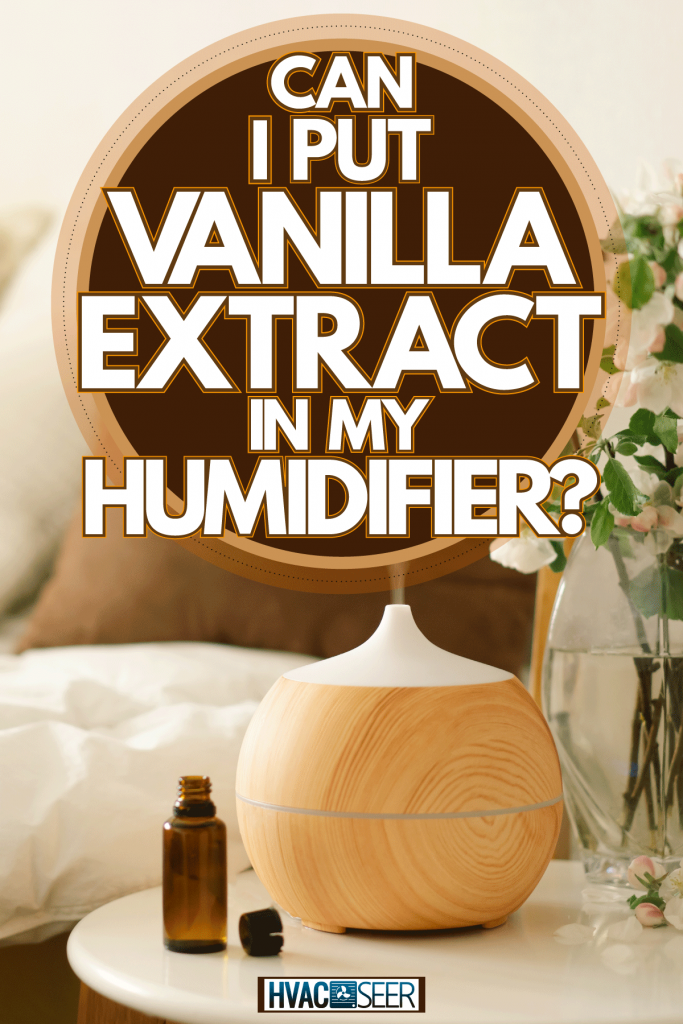
Can I Put Vanilla Extract In My Humidifier?
While vanilla extract is excellent for baking, it shouldn't be used in your humidifier. Vanilla extract has many uses, but it's not meant for humidifiers. The reason you can't put vanilla extract in a humidifier lies in the ingredients of these two everyday household items.
A humidifier works by adding moisture to the air, usually with vaporization and evaporation. This process starts with a wick in the humidifier that draws water from a reservoir. This is where vanilla extract would come into play, but it's not a practical solution.
Humidifiers usually have filters that keep the vapor in the air clean and free of germs and bacteria, which could cause illness to humans. Since vanilla extract contains alcohol, it would ruin the filter in your humidifier.
Vanilla extract is not recommended for ultrasonic or cool mist humidifiers that rely on water droplets being turned into vapor rather than steam.
The alcohol in vanilla extract could corrode the metal pieces within the humidifier and leach out heavy metals. These may include lead, mercury, zinc, and chromium. This may cause health problems for humans coming in contact with the humidifier's vapor.
In addition, you shouldn't put essential oils in a humidifier. The oils can erode the plastic casing of the humidifier, causing it to crack or break. However, you can put essential oils in a diffuser if you choose to.
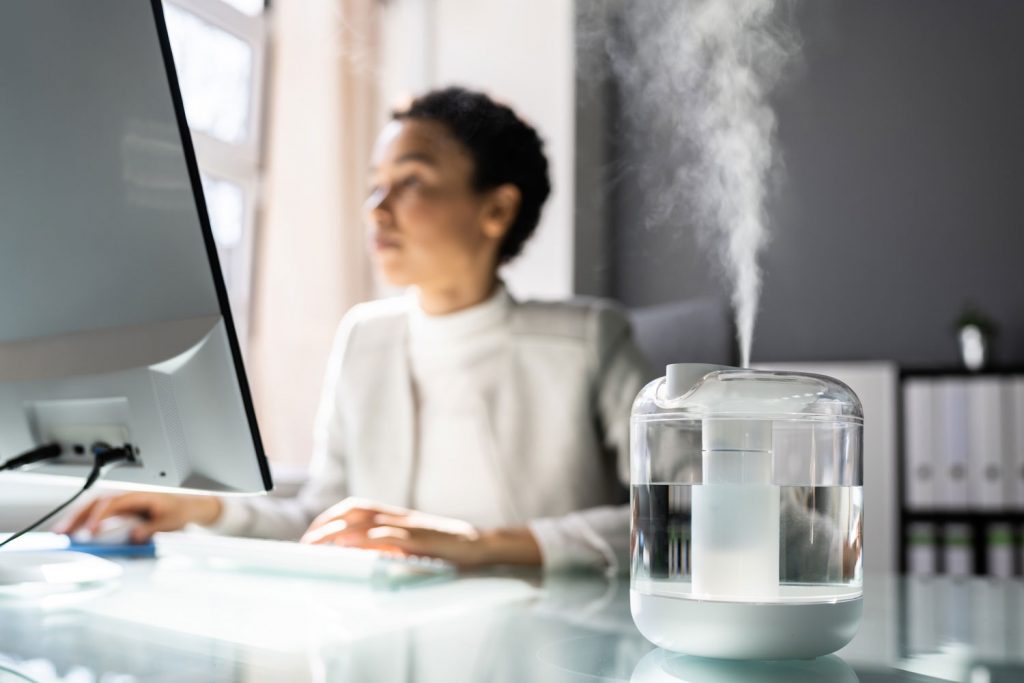
Alternative Solutions to Add Aroma to Your Humidifier
You have a few options to add fragrance or essential oils to your humidifier. For example, you can add scented water, liquid potpourri, or essential oils to your humidifier.
Scented Water
You can add scented water to your humidifier. However, you should not use tap water due to its chemicals. If your tap water has a high chlorine content, it may be better to use distilled water instead.
Add purified or demineralized water that has been boiled then cooled for an additional layer of protection against bacteria and other contaminants. You can purchase scented water or make your own with distilled water and a few drops of essential oil you like.
Lemon Juice
Lemon juice can be used as an alternative to scented water or essential oils. The natural acids in the lemon will help kill bacteria and give off a pleasant aroma throughout your home without ruining your humidifier's filter.
Can I put essential oils in a humidifier?
You can put a few drops of essential oil in a diffuser to give your home an added scent. However, it's not recommended for use with humidifiers because they rely on vaporizing water rather than steam as vaporizers do.
The chemicals in oils may corrode the metal pieces within the humidifier and leach out heavy metals, which may cause health problems. You can purchase a humidifier with a diffuser, so you can use the essential oils and get the benefits of the humidifier.
What's the difference between a diffuser and a humidifier?
Essentially, a diffuser and humidifiers serve the same purpose: they will help increase moisture in your home. However, there are some critical differences between them.
A diffuser uses water and essential oils to give off a scent throughout your home without heating the mixture as a humidifier does.
Humidifiers use hot or cool mist that is compressed into a fine mist. The hot or cool mist can be used as an alternative to a diffuser, but the essential oils cannot.
What can I add to my humidifier?
You can use several options as an alternative to vanilla extract in your humidifier. For example, you can add scented water or liquid potpourri to your humidifier.
Lemon juice is another option for adding a fresh, natural scent. If you choose to use essential oils, put them in a diffuser instead of the humidifier itself.
In addition, you can add white vinegar or hydrogen peroxide to your humidifier. By doing so, it will help prevent mold build-up in the unit. Just be sure to turn off your humidifier for about 24 hours after adding the vinegar or hydrogen peroxide so it has time to kill the mold.
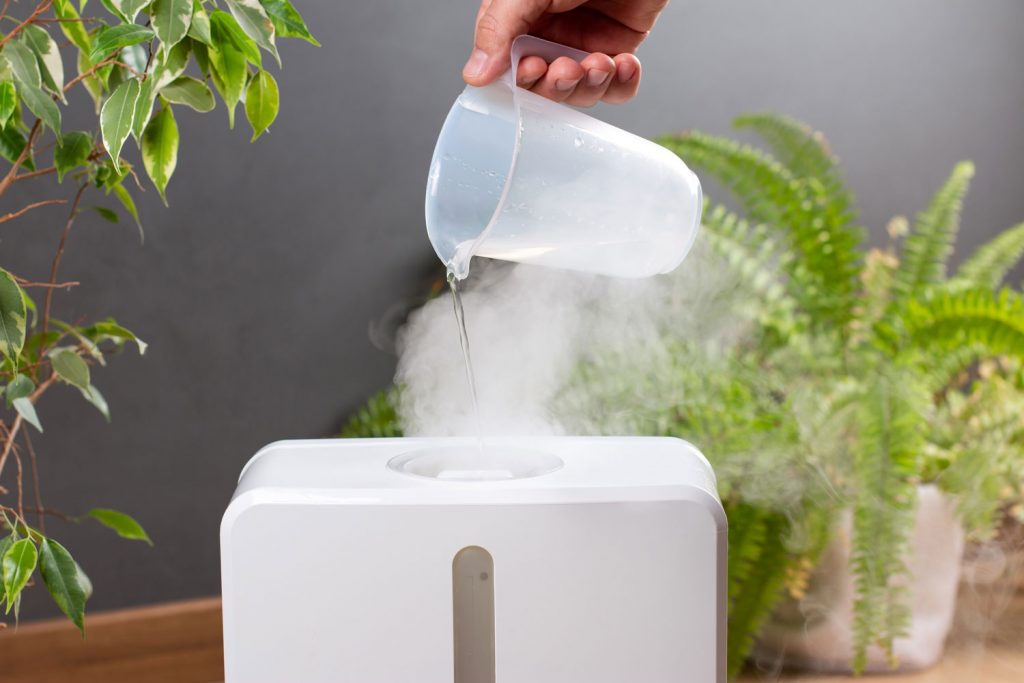
What is the best scent for a humidifier?
There are humidifiers on the market that do come with a diffuser. If you have one of these units, you can enjoy the wonderful scents of essential oils. Let's take a look at the best scents for a humidifier diffuser combo:
Lavender Oil
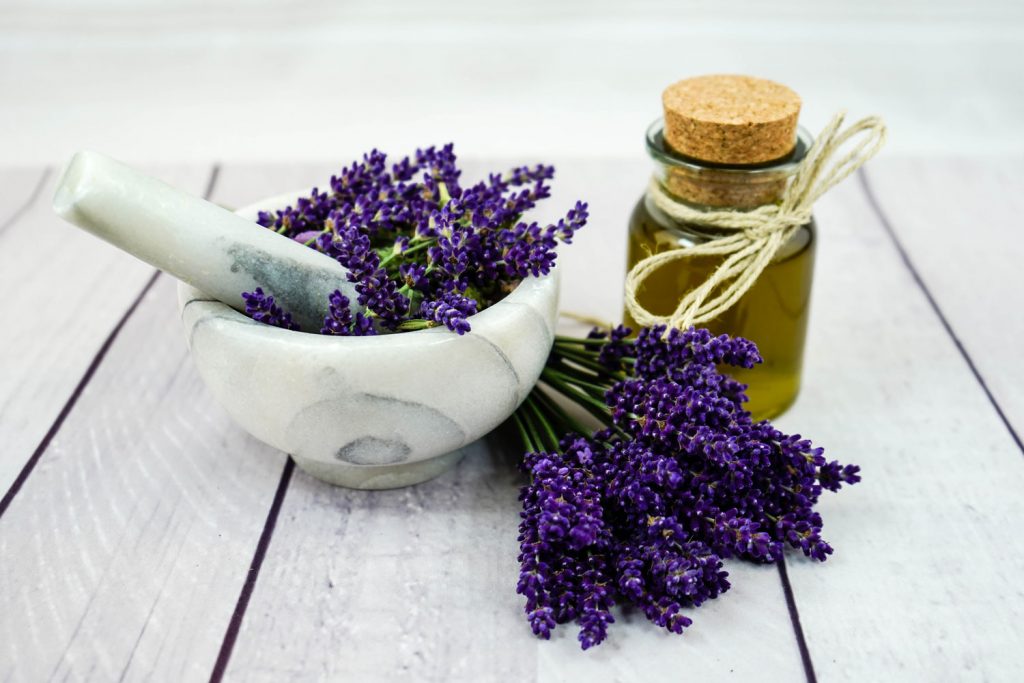
Lavender is great for promoting relaxation. For example, it can help you calm down after a tough day at work or school while also soothing dry skin.
Peppermint Oil
Peppermint is known to help with congestion and respiratory issues, so it's perfect for the winter months when people tend to get more colds and coughs. In addition, you can use peppermint in your humidifier to help clear up chest congestion.
Lemongrass Oil
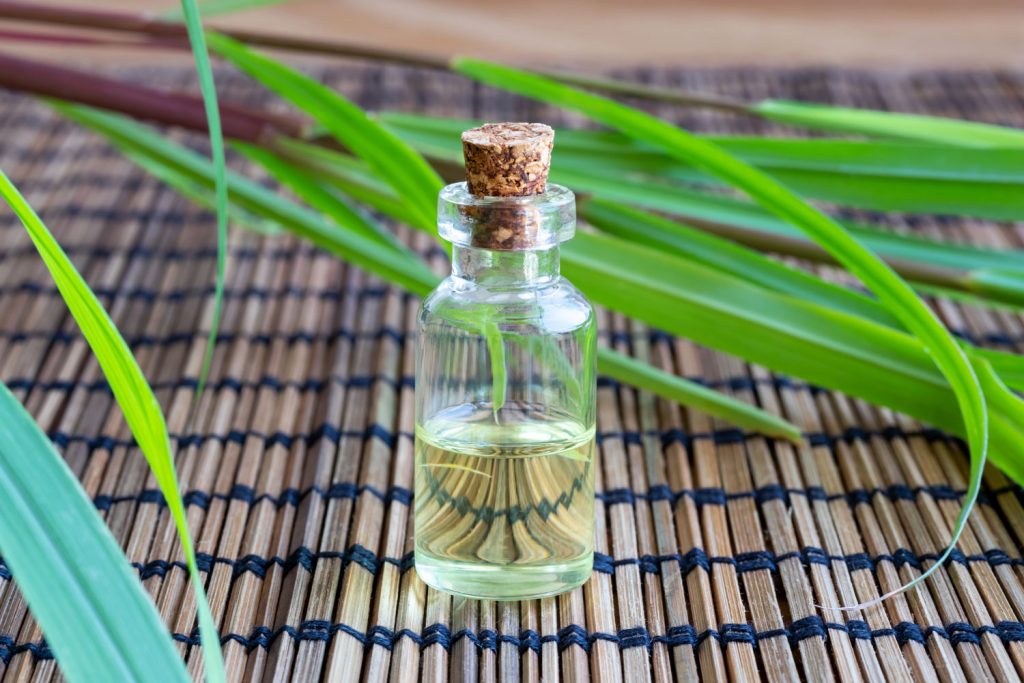
Lemongrass is a good choice for warmer months when it helps suppress the appetite to help you lose weight. It's also known to stimulate your senses and improve your mood, so if you're feeling sluggish in the summer, it can give you an extra boost of energy.
Eucalyptus oil
Eucalyptus oil is good for allergies and respiratory issues. It can also help clear up chest congestion, so it's excellent when people get sick more often in the winter months.
Rose Oil
Rose oil is known to help with sleep issues and depression. In addition, it boosts self-confidence and your mood, so it's an attractive choice for those who struggle with low self-esteem or depression.
Citronella Oil
If you're using a diffuser in the summer months, then citronella oil is perfect for you! It can help repel mosquitoes and other insects while giving your home a fresh, natural scent.
Tea Tree Oil
Similar to citronella, tea tree oil can be used in place of vanilla extract or scented water in the summer months when pests like ticks and fleas are rampant.
Patchouli Oil
Patchouli oil is perfect for humidifiers because it can help with acne and dandruff. It's also suitable for respiratory issues like allergies, so this scent is excellent for you if you suffer from hay fever or other environmental allergies.
Ylang Ylang Oil
Ylang-ylang oil has a calming effect on most people. It can help reduce anxiety and stress while improving your mood, so it's perfect for those who struggle with depression.
Jasmine Oil
Jasmine oil has a luxurious scent known to promote restful sleep in most people. Because of this, it's recommended that you use jasmine oil in your humidifier at night before going to bed.
Vanilla Oil
Vanilla oil is an excellent choice for those who want a sweet fragrance that isn't too strong or overpowering. In addition, vanilla is known to help with headaches and migraines and respiratory issues like congestion and allergies.
Deciding the best scent will depend on what your nose likes and what medicinal purposes you need the scent for, but these are some popular suggestions that most people can enjoy.
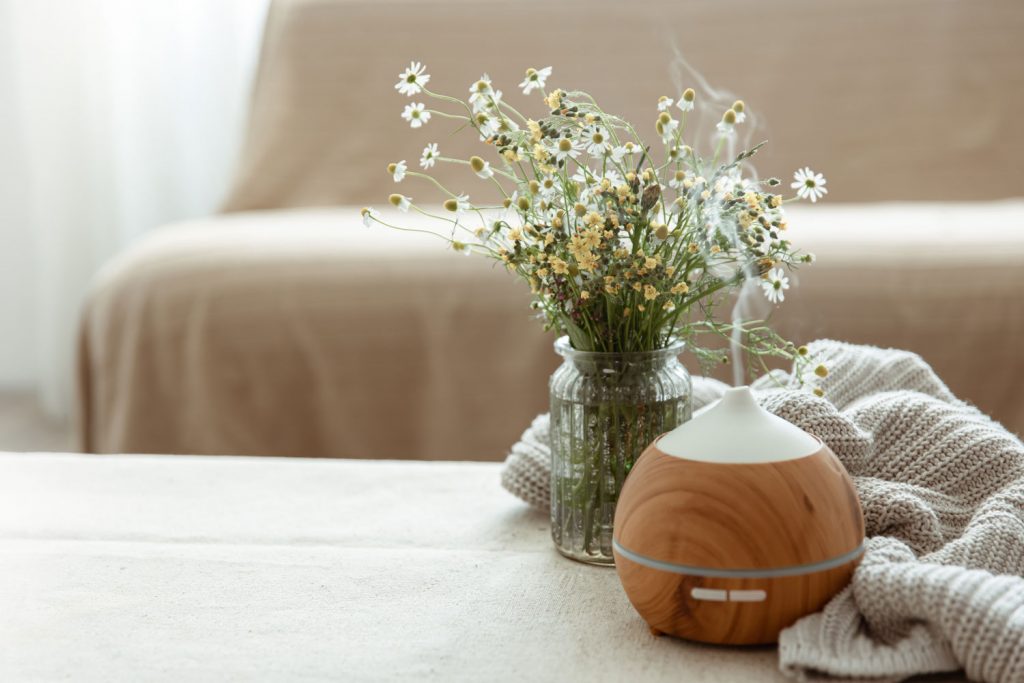
Is a humidifier good for your lungs?
A humidifier can be very beneficial for your lungs. If you've ever had a cough that wouldn't go away, then it might have been something as simple as dry air. However, dry air in your home or workspace can lead to respiratory issues like coughing, wheezing, or difficulty breathing in some people.
When the humidity levels drop in your home, it can cause you to lose some of the moisture in your lungs. This loss of moisture makes it difficult for the airways to properly function and can result in coughing or hacking as they try to expel all that extra mucus from dry air.
A humidifier is a great way to improve air quality in your home. It shoots out a warm mist that helps restore the moisture in your lungs. A humidifier can be especially beneficial for asthma or other respiratory issues like allergies, pneumonia, bronchitis, and even colds.
Final Thoughts
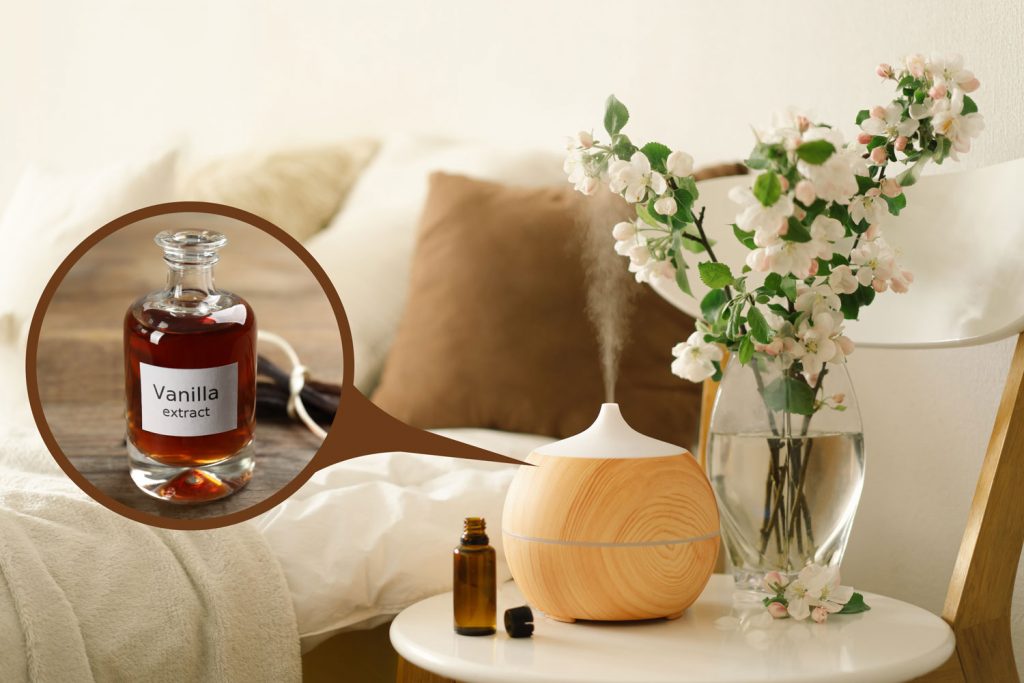
Humidifiers serve various purposes, from adding moisture to the air during dry months to alleviating some respiratory issues. Using a humidifier can help you breathe better and get a good night's sleep. While vanilla extract isn't a great choice to add scent to your home, having a diffuser can solve this problem with essential oils.
For more articles like this one, check out our website:
Humidifier Leaving White Dust – What To Do?
